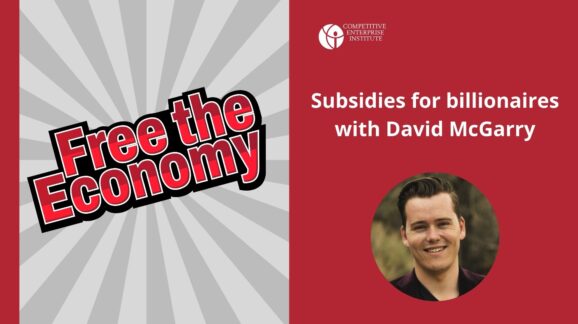There are two main areas in which Congress can enact meaningful reform. The first is to rein in regulatory guidance documents, which we refer to as “regulatory dark matter,” whereby agencies regulate through Federal Register notices, guidance documents, and other means outside standard rulemaking procedure. The second is to enact a series of reforms to increase agency transparency and accountability of all regulation and guidance. These include annual regulatory report cards for rulemaking agencies and regulatory cost estimates from the Office of Management and Budget for more than just a small subset of rules.
In 2019, President Trump signed two executive orders aimed at stopping the practice of agencies using guidance documents to effectively implement policy without going through the legally required notice and comment process.
Featured Posts

Blog
The week in regulations: Bird hunting and food coloring
The Federal Register’s website became less transparent about rule counts and other data. President Trump threatened to send the military into a third city. The…

Blog
Free the Economy podcast: Subsidies for billionaires with David McGarry
In this week’s episode we cover White House intervention in corporate ownership, the nation’s falling economic freedom ranking, and welcome new…

News Release
Federal appeals court rules on NLRB unconstitutionality
The 5th Circuit Court of Appeals today issued a ruling suggesting the structure of the federal government’s top labor dispute regulator, the National Labor Relations…
Search Posts
Blog
Regulation without Representation
Over at The Hill's Congress blog, Wayne Crews and I make the case for reining in the regulatory state as a way to improve the…
Blog
CEI’s Battered Business Bureau: The Week in Regulation
52 new regulations, from hedge funds to California dates.
Blog
Long-Suspected TSA Abuse and Incompetence Confirmed by Former TSA Employee
Politico Magazine has a disturbing article by former transportation security officer Jason Edward Harrington. At least it would be disturbing if it wasn’t largely just a confirmation…
Blog
Reining in the Executive Branch Bureaucracy, Part 5: Categorize Regulations by Impact
Since the Federalist Papers, America has debated “Energy in the Executive.” But President Obama’s 2014 agenda framed by his…
Blog
State of the Union: President Gets Minimum Wage and Gender Pay Gap Wrong
President Obama surprised few in his State of the Union address, which was dominated by egalitarian and populist themes. The president is entitled to his…
Blog
State of the Union: Economic Band-Aids for Poverty and Unemployment
One of progressivism’s most admirable traits is its concern for the little guy. But many progressive policies for alleviating poverty, unemployment, and other social problems…
Staff & Scholars

Clyde Wayne Crews
Fred L. Smith Fellow in Regulatory Studies
- Business and Government
- Consumer Freedom
- Deregulation

Ryan Young
Senior Economist
- Antitrust
- Business and Government
- Regulatory Reform

Fred L. Smith, Jr.
Founder; Chairman Emeritus
- Automobiles and Roads
- Aviation
- Business and Government

Sam Kazman
Counsel Emeritus
- Antitrust
- Automobiles and Roads
- Banking and Finance

Marlo Lewis, Jr.
Senior Fellow
- Climate
- Energy
- Energy and Environment